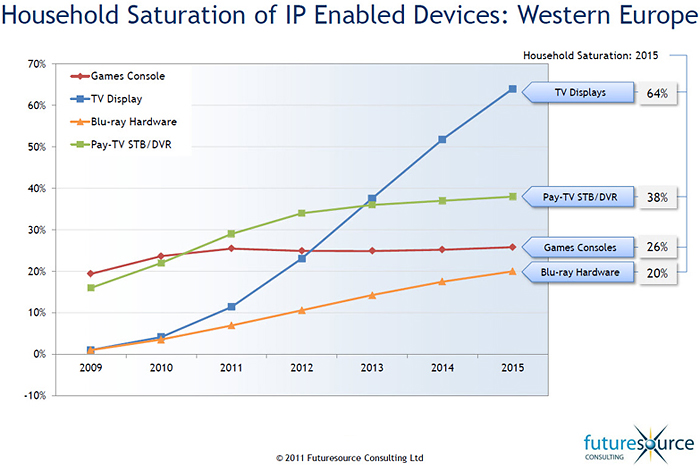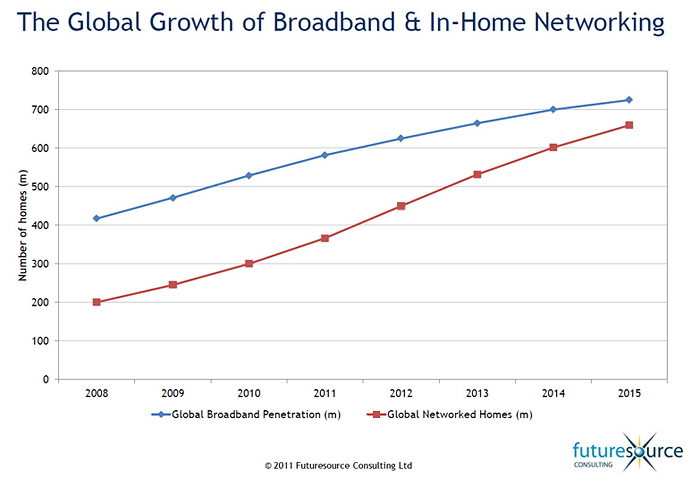With forecasts exceeding 80% of units shipped by 2015, connected TVs are expected to lead the way in global TV shipments escalating from 27% in 2011, according to new research from Futuresource Consulting. On a regional level, Japan leads the way in the adoption of connected TVs, with 59% of shipments in 2011 integrating IP connectivity as standard. Penetration in the USA and China hit 29%, however Europe is behind the curve with 24% of TV sales being connected.


As demand for connected TVs gains momentum, major TV manufacturers are responding by making IP connectivity a standard feature in 60% to 80% of their product portfolio. In addition, embedded Wi-Fi is expected to drive usage moving forwards and many premium models now incorporate this feature enabling consumers to connect and use with ease.
Looking to the wider market, as developed territories head towards saturation the world’s emerging markets including Brazil and India, witnessing 40% and 86% growth respectively, look set to be driving the global consumer TV industry.
Market development will be primarily driven by LED TV shipments, accounting for 90% of units to be shipped globally by 2015. Other technologies including LCD, PDP and CRT are expected to decline throughout the forecast period, while OLED currently used in smartphone technology, will gain traction in TV development by 2015. Market leaders Samsung and LG are already showcasing this technology with launches anticipated in 2012.
Increased product availability and falling price premiums have contributed to a growth in global shipments of 3DTVs. Shipments of 16 million units are expected for 2011 once final numbers are in, with anticipated growth throughout the forecast period accounting for 50% of the market in 2015.
One of the key reasons behind the growth of 3DTVs is that consumers are purchasing the 3D function by default when looking to upgrade to higher-end models, mainly as they are unaware of the in-built 3D capability at the time of purchase.


